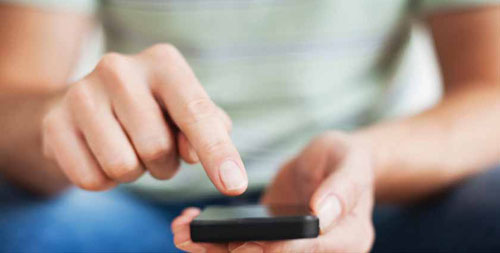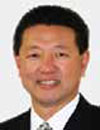
Cell Phone Etiquette


Cell phones are everywhere in the world, including the aviation industry. They are one of the greatest communication tools that we now rely heavily upon. Everyone uses them for business and personal communication purposes.
Unfortunately, cell phone technology is somewhat new and many people are not aware or do not understand that cell phone etiquette is in effect. People somehow do not really seem to know when it is acceptable and not acceptable to use a cell phone, or how a cell phone should be used — especially in a business environment.
The situation is no different than us maintaining a brand new high technology jet aircraft without having a good understanding of regulations nor following them. This could create a fatal situation. We may think cell phone etiquette should not be compared equally to aircraft maintenance practices, but not using proper cell phone etiquette can be fatal to our career, our relationships and future business opportunities. Most of all, poor cell phone etiquette gives a poor impression of ourselves to others. Can we afford to take this chance?
Most of us have already experienced other people using the cell phone in an annoying fashion. What emotions did we experience? What did we think of that person? It was definitely negative and we looked down on them regardless of their job positions. Cell phone etiquette is applicable to everyone — every employee and all executive management. There are no exceptions.
Good cell phone etiquette involves following some simple guidelines of common courtesy when using it in public or in the workplace.
Turn Your Cell Phone Ringer Off At Work
If you have your cell phone at work, it shouldn’t ring. Set your cell phone to vibration mode. The sounds of ringtones going off all the time can be annoying and disruptive to others. In addition, you don’t need to advertize to everyone around you how many calls you are getting. Other people may falsely perceive that you’re making too many personal calls or being unproductive.
If you are in a situation where you have to leave the cell phone ringer on, use a normal telephone ring tone. Don’t use the sound options built in cell phones such as music, phrases and sounds that annoy people around you.
Turn Your Cell Phone Off In Meetings
You will be tempted to see who is calling if you receive a call while in a meeting, even if you have your cell phone set to vibrate. This is not only rude, it is a clear signal to others that your mind is not 100 percent on your job. Calls can wait until your meeting is over or until a break. Remember, people can still hear a cell phone vibrating.
The same rule applies to smart phones, laptops and tablets. Don’t text or email during meetings. Put them away and only use them during breaks.
If you are expecting an important AOG call, ask permission from the group before the call. Once you receive the call, excuse yourself from the room and talk outside.
Cell Phone Off or Silenced During Face-to-Face Conversations
Have you ever experienced a situation where a person right in front of you is talking to you and they stop to answer a cell phone call? It’s frustrating to stand around waiting for their conversation to end and listening to their conversation that does not apply to you.
We have seen customer service representatives answer calls right in front of the customer without excusing themselves. Imagine what the customer felt in this situation. The message was clear — they were not important.
Using a cell phone during a face-to-face business conversation is extremely rude. Continuing to use the cell phone while nodding and signaling to the person in front of you is belittling and not respectful to the other person. The best technique is to turn your cell phone off or put it into silent mode in front of the person you are going to talk to. Let them know that they are No. 1 and are therefore more important than anyone else.
Texting during a face-to-face business conversation is also rude. You may be verbally engaged, but the non-verbal cues are saying, “I’m not interested.”
Use Voice Mail While Working On an Aircraft
While you are working on the aircraft, let voice mail pick it up, regardless of an incoming important call. This is a human factor issue. Cell phone interruptions can lead to mistakes and it could be a major one. It will take much less time to check your messages when you are done working on the aircraft than answering the call and then telling the caller you can’t talk.
You should also limit all cell phone calls when you are working around the aircraft. Calls such as AOG situations, customers, and personal emergencies are important and you must deal with them immediately. However, your friends and family members “calling just to chat” should not be considered important and should not occur while working on or around an aircraft.
Find a Private Place to Make Personal Calls
While it’s okay to use your cell phone at work for private calls during breaks, do not stay at your desk. Find somewhere else to talk where your conversation can not be overheard, even if what you are discussing is not personal. You may be on a break but your co-workers have a job to do and you are interrupting, annoying and distracting them. Furthermore, while at your desk, no one is aware you might be on break. If you’re chatting on your cell, it is perceived that you are unproductive and wasting company time.
Don’t ever use a cell phone in the restroom. This rule should apply whether you are using your cell phone at work, home, or anywhere. The person on the other end of the line will hear bathroom sounds such as toilets flushing and much more.
Do Not Talk Too Loudly
Trust the phone’s microphone to adequately amplify and carry your voice. Your mouth could not physically be any closer to the microphone, so unless you are talking during a jet fighter taking off, there is no need to yell.
Use of a Bluetooth device will force you to talk too loudly. Use Bluetooth devices only in a car while driving or in any situation requiring the use of both hands such as in an office looking up information on a computer. Do not use them in public.
People tend to think of those talking loudly or using Bluetooth devices in public as attention-seekers for the purpose of “showing off” their accomplishments or simply needing to impress surrounding strangers.
Maintain a distance of at least 10 feet from the nearest person when talking on a cell phone. No matter how quietly you speak, others are forced to overhear your personal business if you are standing too close.
Turn Your Phone Off in Restaurants
Answering the cell phone or using a smart phone at your table is poor etiquette. Turn it off. Too many situations occur where someone is talking or using a smart phone during business lunches and dinners. Again, if you are expecting an important AOG call, ask permission from the people at your table before the call. Once you receive the call, excuse yourself from the table and talk in the lobby. Keep your conversation brief so you are not having guests waiting too long for you. After the call, thank the people at the table and then turn it off. The same rule applies to any public place such as elevators, museums, art galleries, sporting events, theaters, concerts, etc.
Airline Travel
Always follow airline personnel’s instructions. Usually cell phones must be off as soon as the aircraft doors are closed until the aircraft lands. If cell phones are on, electronics within can interfere with aircraft systems. If you have to use your cell phone in the aircraft when it is allowed, talk quietly. You don’t need all the people in the aircraft to hear your conversation.
Cut the Cell Phone Leash
It’s not right to be a slave to a tiny piece of plastic and the world of people on the other end of the line. Even though important people get important calls which they need to answer immediately, more important people check their messages later and call back when it is convenient for them.
Too many aviators are tied to cell phones and smart phones waiting for that AOG or important call day and night. We still have a personal life. We must find the balance between work and personal time. Reducing stress by cutting the cell phone leash will allow you to become more efficient.
Following good cell phone etiquette improves relationships, shows respect for others, and increases professionalism including increased productivity and efficiency. There are so many benefits to these simple and fundamental rules. Let’s use them and improve aviation standards.
 J.D. McHenry is the president of Global Jet Services. He has been involved in numerous aviation maintenance and flight operation programs for more than 31 years. His background includes aircraft manufacturer, corporate flight operations, FAR 91 & 135 operations, aircraft management, repair stations and fixed-base operation. He holds an A&P, IA and doctorate of business management. For more information, visit www.GlobalJetServices.com.
J.D. McHenry is the president of Global Jet Services. He has been involved in numerous aviation maintenance and flight operation programs for more than 31 years. His background includes aircraft manufacturer, corporate flight operations, FAR 91 & 135 operations, aircraft management, repair stations and fixed-base operation. He holds an A&P, IA and doctorate of business management. For more information, visit www.GlobalJetServices.com.
